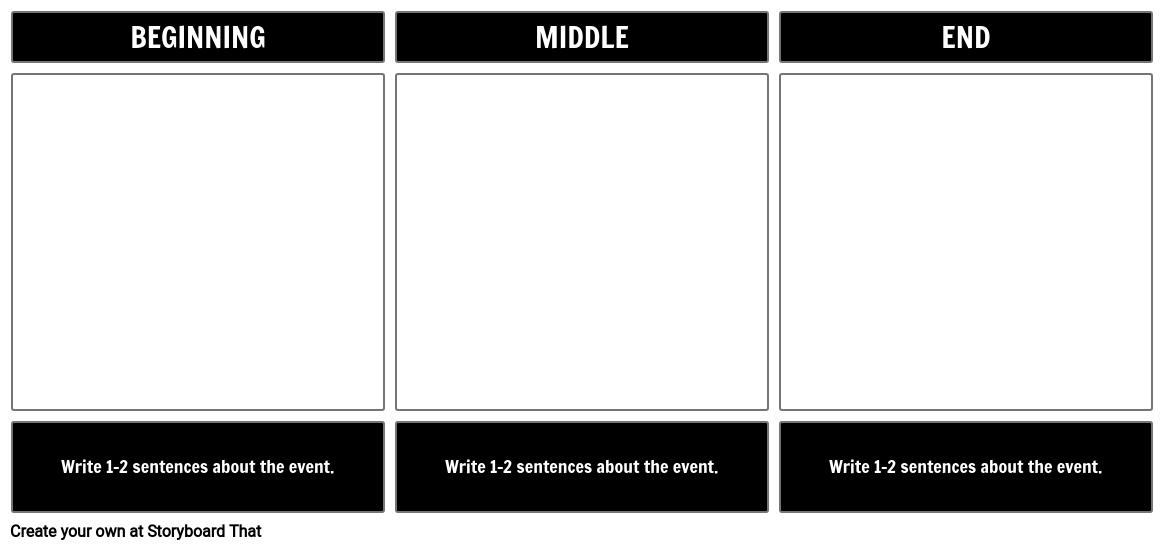Activity Overview
Students decide on what they think the important parts in the text are, and categorize them into the beginning, middle, and end of the story. Having students decide on the beginning, middle, and end will help them break up the text, and make it easier to choose one or two main events to create. Students can plan their ideas with a partner or individually and decide what main parts they would like to add to their storyboard.
The storyboard above shows one example for the beginning, middle and end, but you could set a number of frames for the students to use based on the ability of the student, or length of the text.
Example Sarah, Plain and Tall Summary
Beginning
Anna, Caleb, and their father all miss their mother who died a few years earlier. Anna's father decides to place an ad in the paper, asking for a wife. Sarah Wheaton, from Maine, responds to the letter and decides to come. When she comes, she brings things from the sea, for the children. Sarah always talks about Maine and the sea.
Middle
Sarah fits in with the family right away. She learns how to do things on the farm and helps just like a mother would. Anna and Caleb are very happy and hope that she will stay forever. Sarah meets Maggie, a nearby neighbor, and they talk about how they miss their old lives. Maggie tells Sarah that there will always be something to miss, wherever you are.
End
Sarah drives the wagon into town. Caleb and Anna are worried, because they think she wants to go to town to leave them. They are relieved when she comes back. Sarah tells them she does miss her old home, but would miss them more. Sarah had gone into town to surprise the family, by getting pencils the colors of the sea.
Template and Class Instructions
(These instructions are completely customizable. After clicking "Copy Activity", update the instructions on the Edit Tab of the assignment.)
Student Instructions
Make a storyboard summary of Sarah, Plain and Tall.
- Make a picture that shows the beginning of the story.
- Make a picture that shows the middle of the story.
- Make a picture that shows the end of the story.
- Write a sentence under each picture.
Lesson Plan Reference
Rubric
(You can also create your own on Quick Rubric.)
| Proficient | Emerging | Beginning | |
|---|---|---|---|
| Events | Each of the cells represents a different part of the story. The cells are in order from beginning to end. | One cell is out of order, or the storyboard is missing important information. | Important information is missing and/or two or more cells are out of order. |
| Images | Cells include images that accurately show events in the story and do not get in the way of understanding. | Most images show the events of the story, but some are incorrect. | The images are unclear or do not make sense with the story. |
| Descriptions | Descriptions match the images and show the change over time. | Descriptions do not always match the images or mention the importance of the event. | Descriptions are missing or do not match the images. |
| Spelling and Grammar | Spelling and grammar is mostly accurate. Mistakes do not get in the way of understanding. | Spelling is very inaccurate and hinders full understanding. | Text is very difficult to understand. |
More Storyboard That Activities
Sarah, Plain and Tall
Pricing for Schools & Districts
© 2024 - Clever Prototypes, LLC - All rights reserved.
StoryboardThat is a trademark of Clever Prototypes, LLC, and Registered in U.S. Patent and Trademark Office








